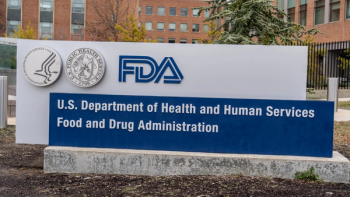
Gilead’s Livdelzi Shows Lasting Efficacy in Primary Biliary Cholangitis, Regardless of Prior Therapy
Interim results from the ongoing Phase III ASSURE trial demonstrated that Livdelzi maintained a consistent biochemical response in patients with primary biliary cholangitis.
Results from an interim analysis of the Phase III ASSURE trial found that Gilead’s Livdelzi (seladelpar) demonstrated sustained efficacy and a favorable safety profile in patients with primary biliary cholangitis (PBC), regardless of prior treatment with fibrates or obeticholic acid. A separate analysis showed that Livdelzi provided clinically meaningful improvements in patients with pruritus, which is a debilitating symptom experienced by up to 80% of people with PBC.1
“Building on the momentum of Livdelzi’s launch, these new data presented at EASL further reinforce its potential as a meaningful treatment option for people living with PBC,” said Dietmar Berger, MD, PhD, chief medical officer, Gilead Sciences, in a press release. “We are particularly encouraged by the sustained biochemical response seen with Livdelzi, even among those who previously received fibrates or obeticholic acid. These results strengthen the evidence supporting Livdelzi’s efficacy and tolerability across a broad population of patients, including those seeking alternatives to current therapies. We remain focused on addressing significant unmet needs and driving progress in liver health.”
The open-label, long-term ASSURE study evaluated the safety and tolerability of Livdelzi in patients with PBC who had previously participated in the Phase III RESPONSE and ENHANCE trials, as well as an open-label Phase II dose-ranging trial, the Phase III/IV long-term safety trial, and the ongoing open-label study in patients with PBC and hepatic impairment.
Across 12 months in the placebo-controlled RESPONSE trial followed by six months in the ASSURE trial, results found that among patients who received 18 months of Livdelzi, 60% of those with prior fibrate or obeticholic acid use achieved a composite biochemical response, compared to 62% of those without such treatment history. Among those who received placebo in RESPONSE and began Livdelzi in ASSURE, 64% of previously treated patients and 78% of treatment-naïve patients achieved the biochemical response endpoint after six months.
An analysis from the RESPONSE study showed that a ≥3-point reduction on the Pruritus Numeric Rating Scale corresponded with a clinically meaningful improvement, as validated through patient-reported outcomes, including the Patient Global Impression of Change and Severity.
Common adverse events (AEs) associated with Livdelzi include headache, abdominal pain, nausea, abdominal distention, and dizziness. No treatment-related serious AEs were reported.1
According to Gilead, there are approximately 130,000 people currently living with PBC in the United States. It is more common in women than in men, with a 9:1 ratio. According to Orphanet, the global prevalence of PBC ranges from 1.91 to 40.2 per 100,000 people. Onset is most common between the 40s and 60s.1,2
“Seladelpar is uniquely positioned as the only once-daily oral treatment that has statistically significant outcomes for both the underlying disease and the burdensome symptom of pruritus in people with PBC,” said Alejandra Maria Villamil, MD, chief of Autoimmune Liver Diseases Unit Hospital Italiano de Buenos Aires Buenos Aires, Argentina. “The demonstrated improvement in pruritus, combined with its established safety and efficacy profile, reinforces seladelpar as an on-label treatment option for people with PBC.”
The data follows a recent marketing authorization by the European Commission for the treatment of PBC in combination with ursodeoxycholic acid (UDCA) for adults with an inadequate response, or as monotherapy in patients intolerant to UDCA. Additionally, the FDA granted Livdelzi accelerated approval in 2024, while the UK Medicines and Healthcare products Regulatory Agency granted approval in January.1
References
1. Gilead’s Livdelzi® (Seladelpar) Demonstrated Consistent Efficacy and Safety Regardless of Prior Treatment History in New Data Presented at EASL 2025. Gilead. May 7, 2025. Accessed May 8, 2025. https://www.gilead.com/news/news-details/2025/gileads-livdelzi-seladelpar-demonstrated-consistent-efficacy-and-safety-regardless-of-prior-treatment-history-in-new-data-presented-at-easl-2025
2. Primary biliary cholangitis. Orphanet. Accessed May 8, 2025. https://www.orpha.net/en/disease/detail/186
Newsletter
Lead with insight with the Pharmaceutical Executive newsletter, featuring strategic analysis, leadership trends, and market intelligence for biopharma decision-makers.




